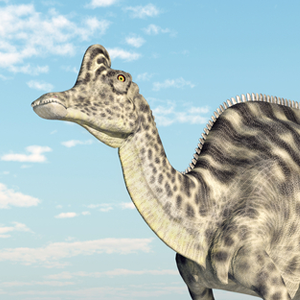
Even dinosaurs developed tumours, with some more prone to growths than others, a new study suggests.
Cancer in modern reptiles
An international group of researchers detected a facial tumour in the fossilised jawbone of a dwarf dinosaur (Telmatosaurus transsylvanicus), also known as a hadrosaur.
Subsequent imaging indicated the duck-billed dinosaur had a noncancerous tumour called an ameloblastoma.
This type of growth has been found in people, other mammals and some modern reptiles, according to the study.
Read: Brain tumours more common in better educated, wealthier people
"This discovery is the first ever described in the fossil record and the first to be thoroughly documented in a dwarf dinosaur," said study researcher Kate Acheson, a doctoral student at the University of Southampton in England.
"Telmatosaurus is known to be close to the root of the duck-billed dinosaur family tree, and the presence of such a deformity early in their evolution provides us with further evidence that the duck-billed dinosaurs were more prone to tumours than other dinosaurs," she said in a university news release.
A sign of weakness
The jawbone is said to be 67 million to 69 million years old. It was discovered in the "Valley of the Dinosaurs", an area in Hateg Country Dinosaurs Geopark, in Transylvania, a region in western Romania.
Read: When tumours contain hair, teeth and other body organs
"The discovery of an ameloblastoma in a duck-billed dinosaur documents that we have more in common with dinosaurs than previously realised. We get the same [abnormal growths]," said Dr Bruce Rothschild, from Northeast Ohio Medical University, in Rootstown. He specialises in the study of ancient diseases and injuries.
The dinosaur's jawbone reveals it died early but exactly why isn't clear. The researchers speculate the tumour probably wasn't painful or the direct cause of the dinosaur's death.
It may have led indirectly to its death, however. One theory is that predators might have considered the tumour a sign of weakness or vulnerability, leading to an attack.
The study was published in Scientific Reports.
Read more:




 Publications
Publications
 Partners
Partners











